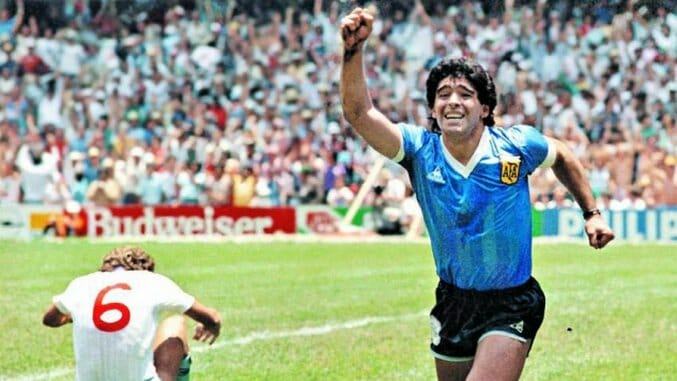Throwback Thursday: Argentina vs England (June 22nd, 1986)
Photo via Wikimedia Commons
Every sport carries a mythology, and every fan knows their sport’s legends and tall-tales. Babe Ruth calling his shot. Michael Jordan playing through a stomach flu and posting 38 in an NBA Finals game. The final plays in Super Bowl XXXIV. We all have, or at least have heard of, these moments, even though they strain credulity—you almost had to have been there to know they really happened.
With football’s lengthy history and global reach, there is never one single perspective on the events that shaped the sport’s history. Ask someone from France what was the most important moment in the history of football and you’ll get a different answer than someone from Brazil. This is a good thing. Football’s history and mythology, like the sport itself, is messy.
But sometimes, there are universals. Maybe you heard it on the radio when it happened. Maybe you saw a documentary about it. Maybe you saw still pictures of it decades later and wondered what it must’ve been there. Maybe you WERE there.
-

-

-

-

-

-

-

-

-

-

-

-

-

-

-

-

-

-

-

-

-

-

-

-

-

-

-

-

-

-

-

-

-

-

-

-

-

-

-

-










































